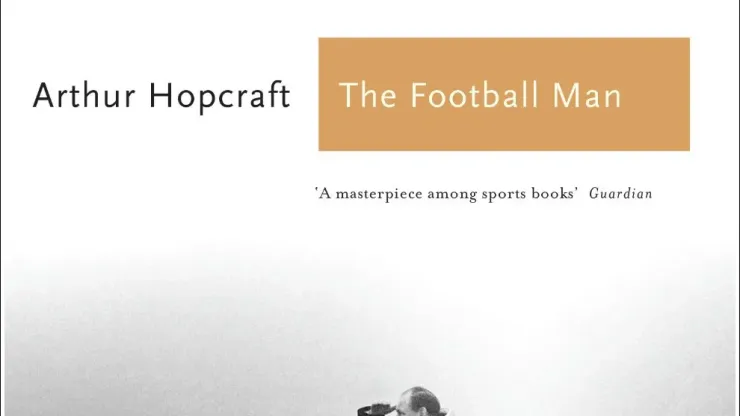Football does not ask for faith: it compels examination.
So writes Arthur Hopcraft in the introduction to The Football Man, reissued late in 2013 as part of the Aurum Press Sports Classics series. When I started reading the book, I kept a blank piece of paper as a bookmark to take notes, a simple page number and one word of a sentence that stood out. I filled up one slip of paper, then another, and then beginning on the third piece, I realized that I was becoming like a medieval monk transcribing a holy manuscript, so I stopped and just read. It has been added to a short shelf of books that have become indispensable.
Written in the late 1960’s, the book begins with the star of the day, George Best, and time travels through the past and into the future. Each section of The Football Man is dedicated to a particular aspect of the game, beginning with the players, and moving on to the manager, the director, the referee, the fan, the amateur, and finishing with football and the press, football and foreigners, and the future. Each section is shorter than the one before, and each firmly establishes its subject with keen insight through interviews and profiles. But he doesn’t let fact hide his storytelling abilities.
On Players:
Duncan Edwards: “The hero is the creature other people would like to be. Edwards was such a man, and he enabled people to respect themselves more.”
Tony Kay: “He knew most of the tricks of the trade, but not the most important trick of all, which is to appear not to.”
Bobby Charlton: “Charlton makes his own rules for dealing with a football. He is a player to admire, but not for younger ones to copy.”
On Managers:
Alan Brown: “Managers make their own decisions about where their responsibility is ultimately owed. With some it is to success; with Brown it is to himself.”
Sir Alf Ramsey: “He does not watch football with his heart in his mouth, taut with anxiety for goals. He watches individual players, dispassionate for their success or failure, noting their advantages and their weaknesses, his mind endlessly taking in and rejecting new faces in the constant search for ‘the blend’.”
Surprisingly it is the chapter about referees that might be the most compelling just because is feels like it springs from the news: Cristiano Ronaldo’s red card at Bilbao last week, and the reported suspension of the referee involved. As you finish this chapter, you have, if not sympathy for, then certainly an understanding of the strengths of a good referee and the weaknesses of a poor one. “The good referee is not the man who plays safe with either a blind eye or a public display of moral outrage, but the one who can unobtrusively remove the teeth from the offence.”
He ends the book with a look at the future of the game, calling the proposed club competition that is the Champions League unrealistic, and at the time he was writing it was. But he hits the other points dead on. The issues he addresses, soccer in the United States, club spending, violence and professional refereeing are still poignant.
The players and managers he writes about may not strike a chord in the readers’ personal memories, but the game he writes about will strike an emotional one. Of entering any soccer ground, he writes: “The moment evokes my past in an instantaneous emotional rapport which is more certain, more secret, than memory.”
This book, The Football Man, opens the gates to that secret part of us that cherishes this sport, and the key bearer’s name is Arthur Hopcraft.
The Football Man is available from all fine booksellers including Amazon.
200+ Channels With Sports & News
- Starting price: $33/mo. for fubo Latino Package
- Watch Premier League, Women’s World Cup, Euro 2024 & Gold Cup
The New Home of MLS
- Price: $14.99/mo. for MLS Season Pass
- Watch every MLS game including playoffs & Leagues Cup
Many Sports & ESPN Originals
- Price: $10.99/mo. (or get ESPN+, Hulu & Disney+ for $14.99/mo.)
- Features Bundesliga, LaLiga, Championship, & FA Cup
2,000+ soccer games per year
- Price: $5.99/mo
- Features Champions League, Serie A, Europa League & Brasileirāo
175 Premier League Games & PL TV
- Starting price: $5.99/mo. for Peacock Premium
- Watch 175 exclusive EPL games per season






